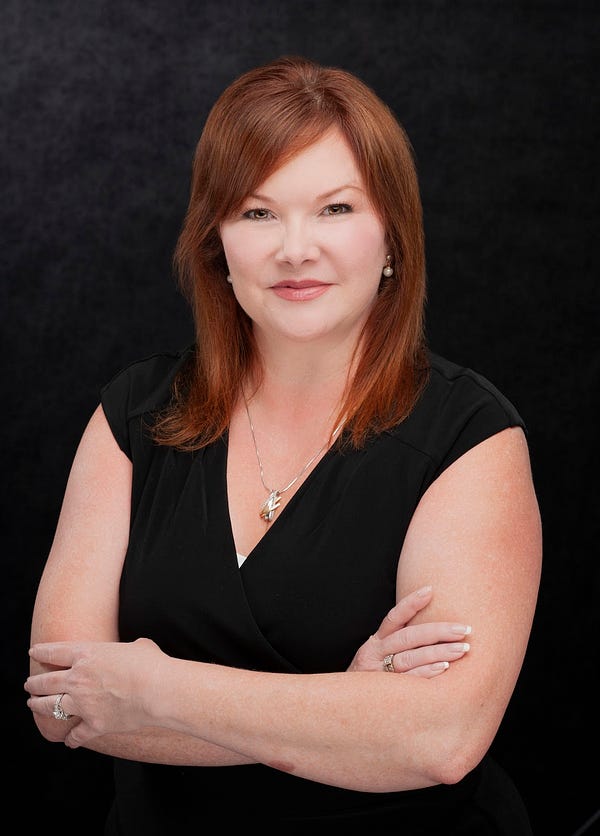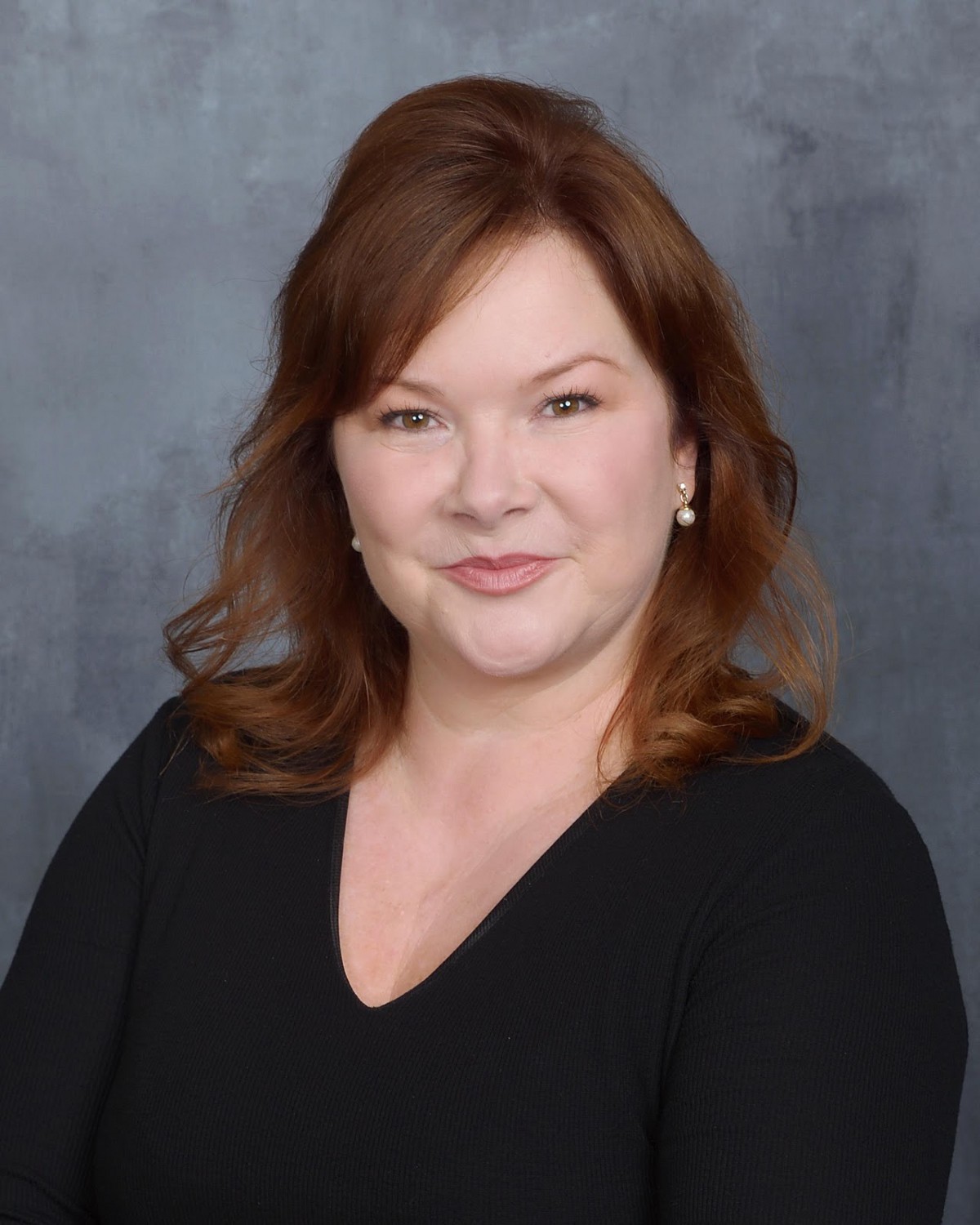“I would like to introduce basic healthcare to the U.S. education system, engaging children and young adults with a curriculum that includes general health, simple first aid, nutrition knowledge and a more nuanced understanding of mental health.”
As a part of my interview series with leaders in healthcare, I had the pleasure to interview Shelly Harvill, a Certified Healthcare Technology Specialist (CHTS) and Healthcare Executive at Agio, focused on Cybersecurity and Compliance.
Shelly has more than 25 years of experience in clinical pharmacy and radiology, information technology and managed cybersecurity services. As Healthcare Executive and Industry Matter Expert for Agio, a hybrid managed IT and cybersecurity firm headquartered in New York, Shelly provides guidance and real-world expertise in the across cyber risk and security governance for healthcare delivery networks and health IT firms seeking to protect and secure sensitive research, patient data and other high value information and digital assets.
Prior to joining Agio, Shelly worked with Cerner Corporation, G.E. Healthcare and Redspin, assisting healthcare organizations in the procurement and adoption of of Electronic Health Records, HITRUST certification, HIPAA and PCI compliance spanning the U.S., Canada and Australia. She attended Ottawa University where she earned her Bachelor’s degree in Healthcare Management. She also holds a degree in Radiographic Technology and Magnetic Resonance (RT) (R) (MR) from the University of Texas Medical Branch, and is an AHIMA Certified Healthcare Technology Specialist (CHTS).
Shelly is also an active member in the Health Information and Management Systems Society (HIMSS), serving as a Speaker-Mentor for the HIMSS Privacy & Security Committee.
Thank you for joining me today. Can you tell us a story about what brought you to this specific career path?
My career has been shaped by a collaboration of clinical patient care and information technology that first started in high school.
While exploring professional paths before college, I was working as a pharmacy technologist. In that role, I was profoundly affected by the struggles of the elderly and families, who would often come into the pharmacy unable to afford their medications. I also saw the perils of addiction and how pharmacists were struggling to fight back without the technology needed to properly track recurring customers and manage attempts to forge or steal prescriptions. Moved and motivated by those in need, I found this path thanks to the kindness of my guidance counselor, who encouraged me to explore a career in healthcare.
I found a position in radiography and magnetic resonance imaging, quickly becoming excited about technology’s application to healthcare, which organically evolved into a passion for patient safety through the application of cybersecurity and patient privacy. In the words of Gandhi: “The best way to find yourself is to lose yourself in the service of others.”
What do you think makes your company stand out? Can you share a story?
Partnership. Our success depends on our ability to collaborate closely with clients, building enough trust in our team that the client sees us as a natural extension of their organization capable of diligently protecting their assets and systems. We wrap our services in industry-specific expertise to make sure that our customers, especially those in healthcare, have the guidance to match their real-world needs. As the leader of Agio’s healthcare vertical, I was recently meeting with a prospect who, after a few minutes, stopped our conversation to say, “you have no idea how refreshing it is to hear a potential partner speaking our language.”
What advice would you give to other healthcare leaders to help their team to thrive?
Know your team by identifying their individual and collective goals. The secret sauce lies in empowerment and investing in your colleagues as people, providing the milestones required to help them realize progress and chasing their input on how to measure success.
According to this study cited by Newsweek, the US healthcare system is ranked as the worst among high income nations. This seems shocking. Can you share with us 3–5 reasons why you think the US is ranked so poorly?
- Over populated emergency and operating rooms are not in balance with the lack of payments received
- The sheer number of uninsured patients are forcing many hospitals to operate without adequate budgets.
- Oversight and regulation meant to protect patient safety can be rigorous. The cost of this necessary but expensive regulation also eats away at the ability for an organization to thrive and scale. These struggles have increased operational costs and reduced the number of experienced physicians willing to stay in the industry.

How would you define an “excellent healthcare provider”?
Excellence in a healthcare provider begins and ends with the patient. It requires support, education and effective communication, so that patients can make the right decisions with their provider, taking compassion and dignity for every visitor into account. Having worked in healthcare since I was 19 years old, I’ve witnessed the patient care experience from a 360-degree view. It was not until I faced my own personal patient experience, however, that I met the true face of compassion. My father, who suffered from an aggressive and acute form of lung cancer without private insurance, was at the mercy of Medicare between diagnosis and his final days. We had concerns over the quality of care he would receive but as fate would have it, we were referred to an oncologist in Tulsa, Oklahoma, who taught me what “excellence” in patient care truly is.
During their first encounter, the doctor quickly realized my dad was scared and lacked a full understanding of his condition. He proceeded to treat my father with respect and dignity, carefully presenting details at a level my father could understand, allowing him to absorb and digest new information. Whenever we called this doctor would answer. Whenever we didn’t, he would proactively check in. The day my father passed, the doctor was right there with us, ensuring we had the freedom and support to say goodbye on our terms.
Can you please give us your favorite “Life Lesson Quote”? Can you share how that was relevant to you in your life?
“If you are offered a seat on a rocket ship, don’t ask what seat! Just get on.” — Sheryl Sandberg
I am firm believer that, all too often, talent fails to realize its potential because someone overthinks a decision. Should I? Shouldn’t I? Do I take that new job? What if I fail? How can I balance work and family? What if I’m not good enough? What if they don’t like my idea? When opportunity knocks we shouldn’t just answer the door, we should invite it in before someone else does. I see too many young women doing this, scared to fail and struggling in their career as a result. Failure does not need to be fruitless though. It teaches us new lessons and helps us grow as a professional in the long-term. Unless one seizes that seat on the rocket ship, they may never be offered another trip to the moon again.
Are you working on any exciting new projects now? How do you think that will help people?
Currently I’m developing medical device security programs to help our hospital and healthcare system clients navigate increasing risk as cyber-attacks become more complex. Incredibly, some medical devices aren’t put to use within healthcare organizations until seven years after initial purchase. Without proper patch updates this outdated software can provide an easy in-road for hackers looking to breach healthcare IT systems.
What are your favorite books, podcasts, or resources that inspire you to be a better healthcare leader? Can you explain why you like them?
I look to innovators and entrepreneurs for inspiration, specifically those who ignore perceived boundaries in pursuit of creation and growth — regardless of industry. I’m a particularly big fan of CNN Heroes, which follows everyday people doing extraordinary things to change the world. These incredible people, and their ability to incite tremendous change on a shoe-string budget with MacGyver-like ingenuity, is awe-inspiring. I also turn to TED talks and multiple industry news feeds like H-ISAC and Healthcare IT News for shorter infusions of industry-specific inspiration. My go-to book is Leaders Eat Last by Simon Sinek.
If you could inspire a movement that would bring the most amount of good to the most amount of people, what would that be?
I would like to introduce basic healthcare to the U.S. education system, engaging children and young adults with a curriculum that includes general health, simple first aid, nutrition knowledge and a more nuanced understanding of mental health. By reaching the population at an early and formative age we can begin to remove certain stigmas from healthcare, while teaching warning signs and effective coping skills that children can take home to their parents, siblings and other loved ones. We teach art, photography and foreign language but not basic life skills such as over-the-counter medication warnings, or the early warning signs of strokes, heart attacks and depression. I feel strongly that this dynamic needs to change.
How can our readers follow you on social media?
Readers can locate me on Twitter: @SecureHealthIT and LinkedIn: ShellyHarvill
About the Author:
Originally from Israel, Limor Weinstein has been anorexic and bulimic, a “nanny spy” to the rich and famous and a Commander in the Israeli Army. Her personal recovery from an eating disorder led her to commit herself to a life of helping others, and along the way she picked up two Master’s Degrees in Psychology from Columbia University and City College as well as a Post-Graduate Certificate in Eating Disorder Treatment from the Institute for Contemporary Psychotherapy.
Upon settling in New York, Limor quickly became known as the “go to” person for families struggling with mental health issues, in part because her openness about her own mental health challenges paved the way for open exchanges. She understood the difficulties many have in finding the right treatment, as well as the stigma that remains so prevalent towards those who are struggling with mental health issues. She realized that most families are quietly struggling with a problem they’re not comfortable talking about, and that discomfort makes it much less likely that they will get the help they need for their loved ones. She discovered that being open and honest about her own mental health challenges took the fear out of the conversations. Her mission became to research and guide those families to the highest-quality treatment available. Helping others became part of her DNA, as has a commitment to supporting and assisting organizations that perform research and treatment in the mental health arena.
After years of helping families by helping connect them to the right treatment and wellness services, Limor realized that the only way to ensure that they are receiving appropriate, coordinated and evidence-based care would be to stay in control of the entire treatment process. That realization led her to create Bespoke Wellness Partners, which employs over 100 of the best clinicians and wellness providers in New York and provides confidential treatment and wellness services throughout the city. Bespoke has built its reputation on strong relationships, personalized, confidential service and a commitment to ensuring that all clients find the right treatment for their particular issues.
In addition to her role at Bespoke Wellness Partners, Limor is the Co-Chair of the Academy of Eating Disorders. She lives with her husband, three daughters and their dog Rex in Manhattan.
To sign up for our newsletter, or learn more about custom mental health, click here.


